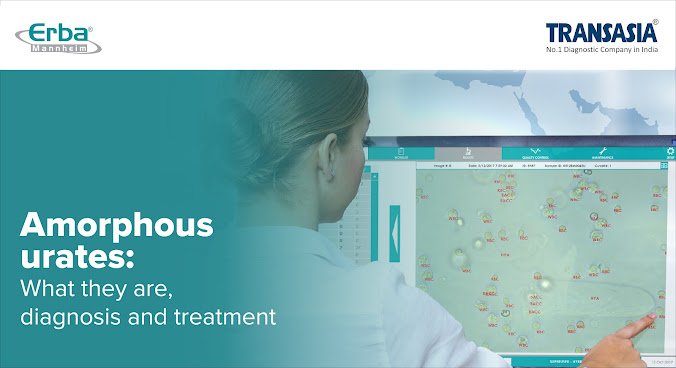Saving lives from HIV starts with early testing
Do you remember the Bollywood movie that highlights how the main protagonist’s world turns upside down when she is tested HIV positive? Not surprisingly, the movie wasn’t a box-office success for treading the forbidden path. HIV and AIDS still continue to be shadowed by societal stigma.
This World AIDS Day, Transasia does a reality check on the prevalence of the infection and re-emphasizes the need for early diagnosis.
HIV and AIDS
Most people confuse HIV and AIDS. While HIV is the virus that attacks the immune system; AIDS, also known as late stage HIV, is a set of symptoms that are manifested due to an immune system seriously damaged by HIV. Though there is no cure for HIV, early diagnosis can aid in timely initiation of antiretroviral therapy that can stop the virus from damaging the immune system. An HIV patient who has received timely treatment can live a normal and long life without progressing to late stage HIV.
Arresting the infection early on!
HIV diagnosis is made by either demonstrating the presence of virus or viral products (antigens), alternatively by detecting host response (antibodies) to the virus. Rapid diagnostic tests provide same day results and are a good form of initial screening. However, confirmatory tests such as serological assays (eg. ELISA) to detect anti-HIV antibodies or HIV p24 antigen, Chemiluminescence immunoassays (CLIA) or Nucleic Acid Amplification Test (NAAT) to detect HIV nucleic acids, need to be mandatorily performed. HIV infection can be detected with great accuracy using WHO prequalified tests.
An infected person, generally develops antibodies against HIV after 4-6 weeks of infection. During this asymptomatic period of seroconversion - when the body’s immune system has still not developed anti-HIV antibodies, the infected person can unknowingly transfer the HIV infection to others. There is a high possibility, that a test done during these initial days, does not reveal the true diagnosis. This is where the testing kit’s sensitivity, specificity and the analytical sensitivity for HIV p24 antigen, becomes utmost important, in order to eliminate any false reporting.
Following a positive diagnosis, the patient should be retested before they are enrolled in treatment and care to rule out any potential testing or reporting error.
In India, since NAAT testing is quite expensive and not practically available for small and medium lab setups, serological assays such as ELISA, are a more common diagnostic method for HIV. As an alternative to NAAT, combined fourth-generation assays for detection HIV antigen and antibodies simultaneously, have been developed with high sensitivity and specificity.
Transasia plays its part
India’s leading diagnostic company; Transasia is committed to meeting the needs of doctors and patients for reliable and affordable diagnostic solutions. A dedicated team of R&D experts as devised the ErbaLisa HIV Gen 4, a fourth generation HIV ELISA for early detection of the infection. The analytical sensitivity for p24 antigen in ErbaLisa HIV Gen 4, is 2 IU/ml or 20 pg/ml, which is in accordance with the WHO recommendations. As a result, this test can detect the HIV infection within a window period of 2 weeks, which is important especially in cases of HIV infection where the infected individuals are still antibody-negative, especially in blood donors. Therefore, ErbaLisa HIV Gen 4 drastically brings down the chances of false negatives and is a reliable, early test for HIV infection.
Alongside, Transasia also manufacture fully automated ELISA processing systems to fasten the ELISA workflows and ensure the reliability of results. The company will also be soon launching its range of Chemiluminescent Immunoassays (CLIA) and fully automated platforms, adding to the company’s array of Immunoassay automation.
HIV and TB - a dual challenge, molecular testing to the rescue!
Not just HIV, TB has also been a matter of concern for India with 27% of the TB patients globally, residing in India. In 2016, 12% of the people who enrolled for HIV care in India had active TB. So India has a herculean task at hand to ensure early diagnosis of HIV and TB. Having said that it is important to note that there is in urgent need to reach out to the remote areas through Primary Healthcare Centres to create awareness and access to initial screening.
Leaving no stone unturned, Transasia has also announced its entry into molecular diagnostics with the pre-launch of its automated nucleic acid extractor. This will open up new avenues for affordable molecular testing of TB and HIV.
Sources:
https://www.who.int/news-room/fact-sheets/detail/hiv-aids
https://www.avert.org/professionals/hiv-around-world/asia-pacific/india
http://naco.gov.in/hiv-facts-figures
https://www.unaids.org/en/resources/909090
Authored By:
Ms. Rashmi Jha
Assistant Product Manager
Transasia Bio-Medicals Ltd.
Authored By:
Ms. Rashmi Jha
Assistant Product Manager
Transasia Bio-Medicals Ltd.








Comments
Post a Comment